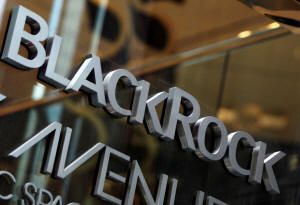|
With $9.4 trillion under management, BlackRock's votes have
become key to many contests at companies around the globe and in
turn drawn much scrutiny of its practices.
In an annual stewardship report being released with the end of
the 12-month corporate annual meeting cycle on June 30, New
York-based BlackRock said it supported 7% of 399 shareholder
proposals on environmental and social issues. According to prior
reports that was down from 22% of 321 of such measures in the
previous cycle and 47% of 172 of them the year before.
In the newest report BlackRock said many of the measures called
for changes that would not be helpful to companies in its funds.
"Because so many proposals were over-reaching, lacking economic
merit, or simply redundant, they were unlikely to help promote
long-term shareholder value and received less support from
shareholders, including BlackRock, than in years past," the
report said.
BlackRock also said it supported directors 89% of the time,
consistent with past years.
It said boards had made progress reducing directors serving at
too many companies, and withheld support from management's
recommendation on the election of 849 directors over that issue
- 150 fewer than in the previous proxy year.
The higher number of the largely non-binding resolutions
reflects growing shareholder interest in issues like emissions
reductions and workforce diversity, aided by looser U.S.
regulations on corporate ballot access.
Data has previously shown investor support slipping for many
resolutions, and as companies strike compromises with activists.
BlackRock has been under fire from conservative U.S. politicians
who say it has over-emphasized sustainability issues, citing
past proxy votes. BlackRock did not address how the criticism
may have shaped votes this year.
(Reporting by Ross Kerber in Boston and by Isla Binie in New
York; Additional reporting by Simon Jessop in London; Editing by
Sonali Paul)
[© 2023 Thomson Reuters. All rights
reserved.]
This material may not be published,
broadcast, rewritten or redistributed.
Thompson Reuters is solely responsible for this content.

|
|




